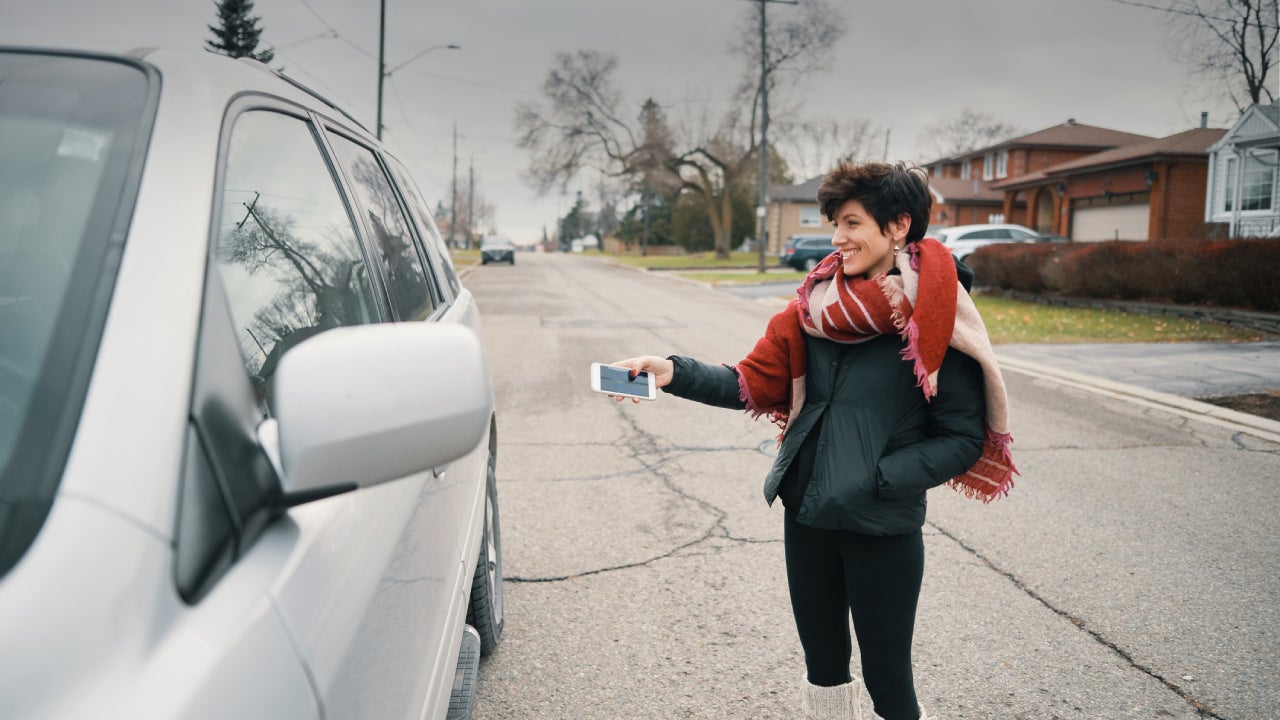Arkansas car insurance laws: What you need to know



Like most states, Arkansas requires a minimum level of car insurance coverage to legally drive on public roads. While the cost of insurance can feel overwhelming and the temptation to skip a payment may be strong, this analysis of Arkansas car insurance laws should prove that the consequences of letting your coverage lapse are not worth risking. From legal fines to paying out-of-pocket for a car accident, Bankrate is here to help you navigate Arkansas insurance laws to ensure you have the appropriate coverage to protect you and your finances.
Arkansas car insurance laws
Every driver in Arkansas must carry a minimum amount of car insurance in order to legally operate their vehicle. The minimum requirement in Arkansas is a 25/50/25 insurance policy, which is the abbreviation for the following liability limits:
- $25,000 in bodily injury liability coverage per person
- $50,000 in bodily injury liability coverage per accident
- $25,000 in property damage liability coverage per accident
Uninsured and underinsured motorist coverage must also be offered by car insurance companies in Arkansas, but can be declined by the policyholder.
If you cause an accident, bodily injury liability coverage will pay for the other driver’s medical expenses, while property damage liability coverage will pay for the other driver’s car repairs if there is damage. It is important to note that a minimum coverage policy in Arkansas does not provide any protection for your own vehicle.
Arkansas also requires your insurance company to offer you personal injury protection insurance (PIP) and requires that if you do not want to carry it, you must reject the offer in writing.
Liability insurance in Arkansas
Arkansas car insurance laws stipulate that you must carry a minimum of 25/50/25 in liability insurance. But is this enough coverage to protect you in a serious auto accident? Many insurance experts would say no.
If you cause an accident with damage that exceeds your liability limits, you will be responsible for paying the overage out of pocket. Car accidents can be expensive, and even the expenses from a minor accident may add up quickly.
Additionally, liability coverage pays for damage and costs to the other car in an at-fault accident, not to your own car. If your own vehicle is damaged in an at-fault accident and you have minimum coverage insurance, you would need to pay for any damage to your car out of pocket. If you wish to have coverage for your own vehicle, you will need to carry a full coverage car insurance policy, which includes collision and comprehensive insurance. Although your premium will be more expensive, you may be more financially protected in the event of a covered incident like an accident or vandalism.
Is Arkansas a no-fault state?
Arkansas is not a no-fault state but rather an at-fault or tort state. This means the at-fault driver’s insurance pays for the other driver’s hospital bills, lost wages and other medical expenses related to the accident.
In contrast, no-fault states require a driver’s own insurer to cover their injury costs, regardless of who is at fault. For this reason, drivers in no-fault states are required to carry personal injury protection (PIP) coverage.
Penalties for driving without insurance in Arkansas
According to Arkansas Motor Vehicle and Traffic Laws Statute 27-22-103, driving without insurance is illegal. But how much is a no-insurance ticket in Arkansas? Let’s take a look at the fine schedule:
- First violation: Fine of $100 to $250
- Second violation: Fine of $250 to $500
- Third and subsequent violations: Fine of $500 to $1,000 or one year in jail, or both
In addition to fines, if you’re caught driving without insurance during a traffic stop or after an accident, your registration will generally be suspended until you present proof of coverage at the Arkansas DMV. Depending on the court’s decision, you may have to present SR-22 insurance as your proof of coverage, which is usually more expensive than a standard insurance policy. Once you’ve obtained the necessary coverage, you will have to pay a $20 reinstatement fee to reactive your vehicle’s registration.
In fact, you can even get penalized for having an expired insurance policy while you’re sitting at home on the couch. In 2020, Arkansas passed a new law supporting a verification system that actively monitors the status of your insurance policy, automatically fining you $100 if a lapse in coverage is detected. If the driver does not provide updated proof of insurance within a certain timeframe, their registration will be permanently suspended until they purchase coverage and pay the fine.
As reported by the Arkansas Advocate, this verification system has successfully dropped the rate of uninsured drivers from 16% in 2020 down to 8.7% as of 2023. This is a huge breakthrough, considering how complicated and expensive car accidents can be when one or both parties do not have insurance coverage.
Other Arkansas car insurance coverage options
Arkansas car insurance laws require every driver to carry at least a minimum coverage insurance policy. However, many drivers choose to carry additional coverage for added financial protection. These may include full coverage components, like collision and comprehensive coverage, but they may also include policy endorsements. Not all car insurance companies offer these endorsement types, but some common ones are:
- Collision insurance: Collision insurance is a type of auto coverage that pays for damage to your vehicle resulting from collisions with another vehicle or object, even if you are at fault.
- Comprehensive coverage: Comprehensive car insurance coverage protects your finances from damage to your vehicle caused by something other than a collision, such as theft, vandalism or severe weather.
- Gap insurance: If you lease or finance your car, gap insurance may come in handy. In the event that your car gets totaled, gap insurance helps pay the difference between your car’s diminished value and the outstanding loan balance.
- Roadside assistance: Roadside assistance pays for minor vehicle repairs and services, like towing (up to a certain distance), fuel delivery, battery replacement and flat tire changes.
- Accident forgiveness: With accident forgiveness, your car insurance premium will not increase after your first at-fault accident. Keep in mind that most car insurance companies have limits on the damage that qualify for accident forgiveness and some drivers may not be eligible for the endorsement.
- New car replacement: New car replacement coverage may reimburse you for the cost of a similar year make and model if your existing vehicle gets totaled in a covered loss.
Frequently asked questions
-
There is no single car insurance company that is best for everyone. The company that gave your neighbor a great rate may not be able to do the same for you. This is why most insurance professionals recommend shopping around and comparing quotes when looking for the best insurance company in Arkansas. In addition to price, you may also want to consider coverage types, discounts and customer satisfaction when choosing the best car insurance company for your needs.
-
Based on sample rate quotes, the cheapest car insurance companies in Arkansas include USAA, Southern Farm Bureau, Geico and State Farm. You may also be able to lower your car insurance premium by taking advantage of discounts, bundling your policies, paying your annual premium in full and improving your credit score. Comparing quotes may also help you find which company has the lowest rates for you.
-
In Arkansas, as of July 2024, the average cost of car insurance is $2,156 per year, or $179 a month, for a full coverage policy and $431 per year, or $36 a month, for a minimum coverage policy. However, keep in mind that car insurance rates are personalized based on factors like your ZIP code, age, credit score and driving record. The cost of car insurance in Arkansas may vary widely by driver.
-
You will need proof of insurance when you go to register your car in Arkansas. You will need to be able to show that you have at least the state’s minimum 25/50/25 liability coverage. Keep in mind that you have 30 days to register the car once you purchase it, but there is no grace period for insurance. In order to drive legally, you will need to have an active policy.
-
Car insurance rates in Arkansas are influenced by several factors, including the driver’s age, driving record and credit history, as well as the type of vehicle being insured and its safety features. Additionally, your location within Arkansas can impact rates due to varying levels of traffic congestion and accident frequency. The best way to understand how your specific rates are being calculated is by speaking with your insurance agent.
Why we ask for feedback Your feedback helps us improve our content and services. It takes less than a minute to complete.
Your responses are anonymous and will only be used for improving our website.
You may also like

How long should you keep your car insurance records?

Car insurance for smart cars: Average premiums by model


